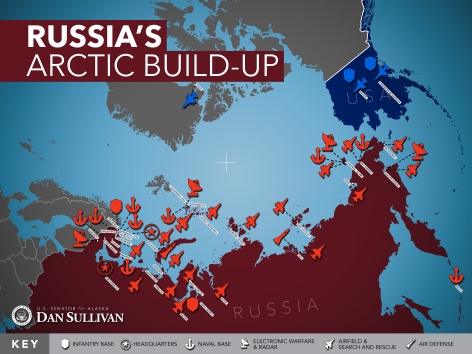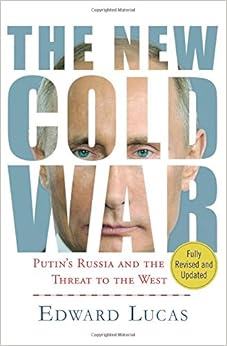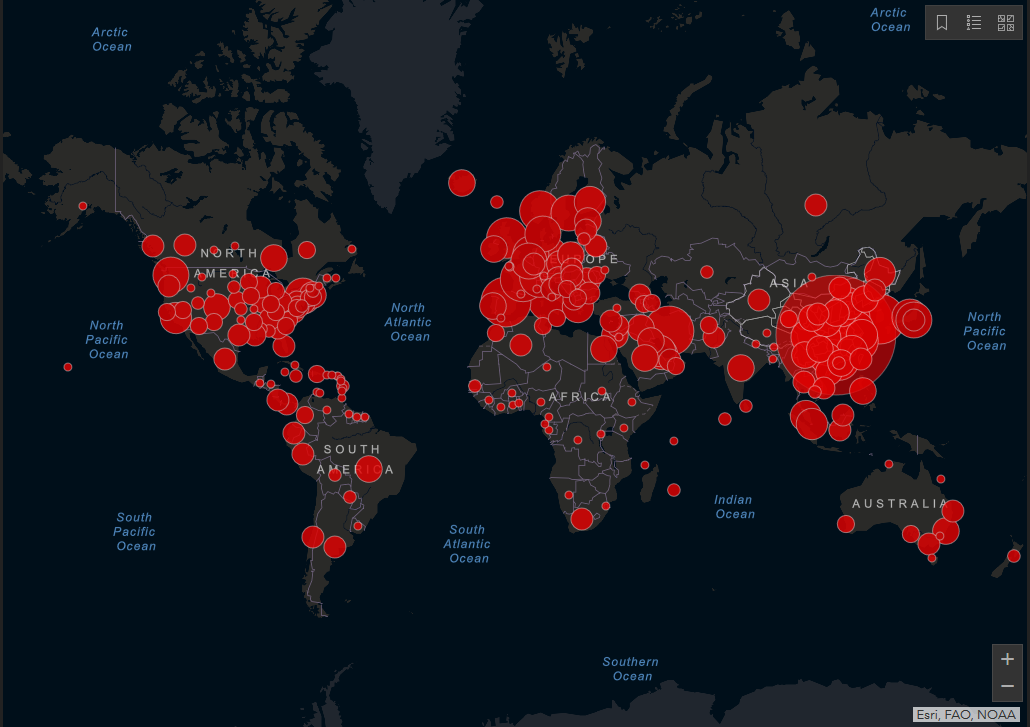> – Bolivarian Intelligence Service Arrests Oswaldo Alvarez, Chavez Opponent Accused President of Drug Trafficking and Links with “Armed, Outlaw Groups”
– Bolivarian Intelligence Service Arrests Oswaldo Alvarez, Chavez Opponent Accused President of Drug Trafficking and Links with “Armed, Outlaw Groups”
– DAS Busts Smuggling Ring Shipping Weapons from Central America to Colombia, Nicaragua’s Top General Denies SAMs Originated from His Inventories
– Guatemalan Vice President: Central American Country’s Generals Eager to Acquire Russian Weapons
We need equipment today and not in a few years.
— Patricia Espinosa, Mexican Foreign Secretary, March 23, 2010
The drug cartels are out of control in Mexico, blockading highways to thwart army operations, gunning down civilians, police, and soldiers alike, and in many cases viciously decapitating and dismembering their victims to terrify rivals and the population in general. As we have documented, Russian operatives in the form of “ex”-KGB types are furtively arming these gangs with automatic weapons and RPGs, even as the Kremlin sidles up to the Mexican government with incentives to sell helicopter gunships and other weapons to crush the narco-insurgency.
Mexico’s communist rebels, like the Zapatista Army of National Liberation and the Popular Revolutionary Army, are kicking back these days. There’s nothing for them to do. Instead, the drug cartels are efficiently destroying the country. Meanwhile, as Mexico burns, the Obama White House fiddles.
In the wake of this week’s official visit to Mexico City by US Secretary of State Hillary Clinton, it would appear that President Barack Hussein Obama is indeed giving the Soviets an open door to become Mexico’s “best friend” in combating this menace. Accompanying Clinton—a veteran leftist whose husband, the former president, is an alleged KGB asset—were Defense Secretary Robert Gates, Homeland Security Secretary Janet Napolitano, Chairman of the Joint Chiefs of Staff Admiral Mike Mullen, and Director of National Intelligence Dennis Blair.
Disturbingly, reports the Washington Post, the White House is shifting its support away from military-style hardware and toward “investments designed to strengthen Mexican communities.” Clinton’s powerful delegation, therefore, had little to offer the besieged government of President Felipe Calderon except a promise to secure support from US lawmakers to continue the Merida Initiative, as well as sponsor community-based programs that dissuade young men from enlisting as foot soldiers in the cartels’ armies. Well, yeah, that’s not a bad idea, but Mexico’s regular forces are outgunned and lacking the technology and expertise needed to wage war against a ruthless (Moscow-backed) insurgency.
During their day-long meeting, Clinton and her Mexican counterpart, Foreign Secretary Patricia Espinosa, reviewed the progress of the Merida Initiative. The three-year, $US1.4 billion program is designed to help governments like Mexico’s combat drug trafficking by providing them with helicopters, night-vision goggles, crime data software, and training for federal police officers and judges. The Obama Admin expects to allocate $US310 million for Mexico in 2011.
However, Espinosa was not impressed by the White House’s package. While agreeing that a joint survey was needed to better understand the nature and extent of illicit drug consumption in the two countries, Espinosa protested: “We need equipment today and not in a few years.” Mexican officials have repeatedly complained about the slow arrival of US-built military equipment and US-delivered counter-insurgency training.
While in Mexico City, Clinton repeated statements that the “appetite” for drugs in the USA greatly contributes to drug trafficking and its “attendant violence” in Mexico: “We know demand for drugs drives much of this violence.” No kidding, Hillary. (Incidentally, Hillary’s hubby knows all about personal drug consumption. Little Rock was awash with cocaine when Bill was governor of Arkansas.) To that end, Clinton pledged to crack down on the southward flow of illegal weapons and drug cash, which will no doubt translate into more gun control and financial regulations in the USA. Decriminalizing drugs was not on the agenda.
For her part, Napolitano told reporters on the flight to Mexico City that the 50,000 troops that Calderon has sent into the streets is the wrong strategy. “It has to be complemented with civilian law enforcement and the whole traditional framework that surrounds that,” she pontificated, adding: “We can help with that.”
Sounds good, Janet, but in reality the US government should give the Mexican Army whatever it needs to crush the cartels and pronto too. US national security depends on the stability of the Mexican state and the exclusion from government of Mexico’s hard left, dominated by the communist-infiltrated Party of the Democratic Revolution (PRD). The next general election in Mexico will take place in 2012. Overweening PRD leader Andres Manuel Lopez Obrador, who bombed out in the 2006 election, still fancies himself the “Legitimate President of Mexico.” “Bolivarian cells” linked to the Chavezista regime are active in Mexico.
So, while the US and Mexican governments hire polling firms to ask their respective publics why they consume narcotics and join drug gangs, the Juarez, Sinaloa, and Gulf Cartels, and Los Zetas and Los Negros paramilitaries will continue to shoot up and chop up anyone who infringes on their multi-billion-dollar-a-year enterprise. Time to lock and load, folks. Everything’s moving south these days, except the drugs themselves.
Latin America’s Expanding “Anti-Imperialist” Army
That the Revolutionary Armed Forces of Cuba are heavily indoctrinated with Marxism should go without saying. Less appreciated is the fact that the red regimes in Venezuela and Bolivia are also inculcating their armed forces with communist dogma.
On March 23 Bolivia’s self-avowed Marxist-Leninist president Evo Morales inaugurated the use of the military’s new slogan, “Fatherland or death, we shall overcome!”, popularized by Fidel Castro and Che Guevara, who not-so-coincidentally met his demise in Bolivia in 1966. The Bolivian army’s new communist slogan has angered some retired generals because it is perceived as part of Morales’ effort to transform the military into guarantors of his socialist revolution. The Bolivian army began using the chant “Patria o muerte, venceremos!” during an annual ceremony known as “Day of the Sea,” which is observed to remember the 1879-84 war against Chile, when Bolivia lost its Pacific coastline. Historically, Bolivia’s military has been associated with right-wing repression.
In 2007 communist dictator Hugo Chavez enacted a similar requirement for Venezuela’s armed forces, selecting “Homeland, Socialism, or Death” as its official salute. At the time retired General Alberto Muller Rojas, a close adviser to Chavez, told Venezuelan media he had already heard the salute in various military installations. Chavez purged the military of opponents after a brief counter-coup ousted him in 2002. Since then he has used Venezuela’s oil revenue to not only beef up the military’s firepower with Russian and Red Chinese warplanes and arms, but also to raise salaries in the ranks.
Some of the military dissidents whom Chavez has thrown in prison include former army chief Raul Isaias Baduel, former admiral Carlos Millan, and onetime general Wilfredo Barroso, who was arrested along with Millan on charges of conspiring to oust the president.
“Chavez does not have the support he thinks he has in the armed forces,” Baduel declared in a jail cell interview last year. Twenty years ago he was a cadre in the Revolutionary Bolivarian Movement-200, Comrade Hugo’s secret cell of leftist officers who tried to seize power twice in 1992. Ten years later Baduel led the paratrooper operation that returned Chavez to power. In 2007, after retiring as defense minister, Baduel broke with Chavez, publicly criticizing the president’s intention to rewrite the constitution and transform Venezuela into a socialist state. “I won’t leave this prison,” Baduel vowed last year, “until Chavez leaves the presidency of Venezuela.”
In March 2009 Chavez replaced the chiefs of the army, air force, and Bolivarian Militia, a Cuban-inspired reserve force organized to repel a US invasion, one of Comrade Hugo’s favourite bête noires. During the same wave of dismissals, Chavez also sacked his latest defense minister, General Gustavo Rangel Briceño, and ordered his henchmen to detain Otto Gebauer, a now-retired captain who apprehended Chavez during the counter-coup. Indeed, the authority of as many as 800 military officers was stripped away in 2008 after doubts surfaced over their loyalty to Chavez and his Cuban-backed “Bolivarian Revolution.”
Of course, the ruling United Socialist Party of Venezuela also persecutes civilian dissidents. This past Monday Chavez’s cronies in the Bolivarian Intelligence Service (formerly DISIP) arrested opposition figure Oswaldo Alvarez, who had publicly accused the Chavezista regime of trafficking in drugs and hiding links with armed, outlaw groups (like no doubt Colombia’s Marxist rebels).
Although the neo-Sandinista regime in Nicaragua has yet to re-politicize the armed forces, the latest commander of the Nicaraguan National Army, General Julio Aviles, is a former Sandinista guerrilla and, thus, an ally of President Daniel Ortega. In fact, the Sandinista Popular Army was not officially de-communized until 1995.
In a related story, on March 24 General Aviles was forced to deny reports that an “international arms trafficking gang” recently busted by Colombian authorities was stealing weapons from the Nicaraguan military and smuggling them into Colombia. Nicaragua’s top general huffed: “You can be assured that the inventories of the Nicaraguan army are secured and safe. The materiel that is spoken of is not of Nicaraguan origin. The information says that the arms are made in other countries, and are not of our own materiel.”
According to Colombia’s intelligence agency, DAS, the smuggling ring transported weapons procured in Central America via the Colombian island of Sand Andres, where they were ferried to the mainland by plane and speedboats. Contraband weapons included “rockets, rifles, and machine guns.” Presumably, “rockets” refer to surface-to-air missiles (SAMs).
It is known, of course, that Nicaragua is still in possession of 1,000 Soviet-built SAM-7 missiles, acquired by the first Sandinista regime in its war against the US-backed Contras. This arsenal remains a point of contention between Washington—which fears that the old man-portable rocket launchers could fall into the hands of terrorists, like the Revolutionary Armed Forces of Colombia—and Managua—which insists upon retaining at least 400 of the weapons for its own defense. It is also known, too, that veteran communist Ortega sympathizes with the aims of the FARC, which seeks to install a Marxist dictatorship in Bogota. If an international criminal syndicate is smuggling SAMs from Central America to shady customers fronting for FARC, then Nicaraguan armouries may very well be the point of origin for these shipments.
Finally, Guatemala’s center-left government is not communist but President Alvaro Colom is very obviously moving his country into Moscow’s orbit, especially in the wake of his visit this week to the Russian capital. In Colom’s delegation was Vice President Rafael Espada, who told Russian President Dmitry Medvedev his country is interested in acquiring Russian arms in exchange for coffee and sugar exports. Like Mexico, although not on quite the same scale, Guatemala is plagued with drug violence. “Guatemala is interested in acquiring planes, armored vehicles and other arms to struggle against organized crime in the country. We could pay for the arms with coffee and sugar,” Espada suggested.
Guatemalan officials already discussed the issue with Russian diplomats last week, Espada revealed. Guatemala’s Chief of Staff, General Juan Jose Ruis, and five other high-ranking officials of the country’s defense ministry took part in the talks, which were apparently held in Guatemala City. Espada related that Russia provided a catalogue of its weapons systems, which would be of interest to Guatemala’s armed forces and the national police. Russia’s Foreign Minister Sergei Lavrov visited Guatemala in February.


















